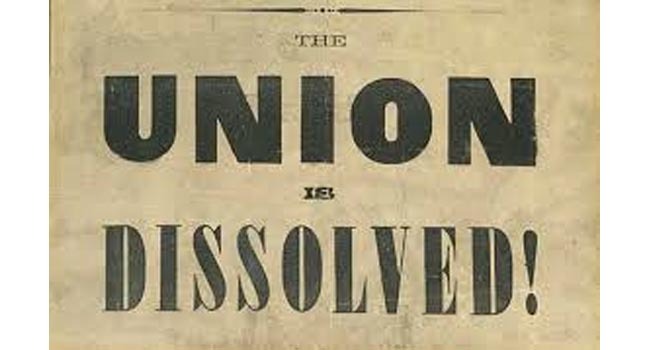Are people who cannot dissolve a political union really free?
Scott Alan Buss
9/30/20142 min read


In the wake of Scotland's recent spirited attempt at leaving the "United Kingdom", many folks have been inspired to ask and contemplate some important fundamentals regarding true freedom, liberty, and the decentralization of government. Separating from the binding controls of large and ever-growing socialistic states has great appeal to many, including most who hold to a biblical worldview and understanding and love of the God-defined roles, responsibilities, and limitations of the family, church, and state.
Today's National Journal posted an interesting article on the subject, and it seems clearer by the day that big changes are washing over our culture, whether we like it or not. Whether those changes will ultimately prove to be mostly awful or mostly positive will be largely impacted by whether they are managed and directed by increasingly centralized, globalist-run governments and corporations, or by more decentralized, locally minded interests. That's one theme among many in the ongoing and growing conversation on this subject, anyway.
For most of us in America, questions of decentralization inherently tend to lead to the topic of secession, and the topic of secession tends to be almost instantly derailed from serious consideration by way of that well-established tool for avoiding substantive contemplation of any politically incorrect thing - The Race Card.
While we will not take the bait here and even begin to defend secession and/or decentralization of government power from ridiculous accusations of being inherently "racist", I would like to encourage the serious contemplation of a few important relevant questions along these lines:
Once a political union is freely entered into, can people freely choose to leave?
.Put another way, is political divorce possible, or should political union be a "'til death do us part" kind of deal that should enforced by any and all means necessary and available against any partner who wishes to freely leave such a union?
.Did our own American Founding Fathers support or oppose the concept of "indivisible political unions"?
Based on their views in action as recorded in history, would those Founding Fathers be more likely to encourage or discourage a "pledge of allegiance" to an "indivisible political union"?
.Does Scripture, in its definition of the roles and responsibilities of the state, promote a large, intrusive government as modeled by our present day Super-States, or does it promote something very much less intrusive and controlling?
.Put another way, is a biblical approach to the state in practice likely to produce and secure more or less true liberty, peace, and prosperity than we are experiencing now under the increasingly centralized governments of Scripture-dismissing Super-States?
I propose to you that radical (and beautiful) decentralization is coming, and coming soon, right here to this world. The systems that be and the powers that be behind them know that this move is afoot and in the wind, and they are preparing accordingly.
My hope and prayer is that we, as Christians, will seize this moment to seek the will of the Lord as revealed in His Word, proclaim His Gospel and pursue His Great Commission, so that we might, in this incredible time, find our way free of many of the imposed, contrived chains that bind us and use whatever new freedoms we may find all to God's glory and therefore to our lasting benefit.